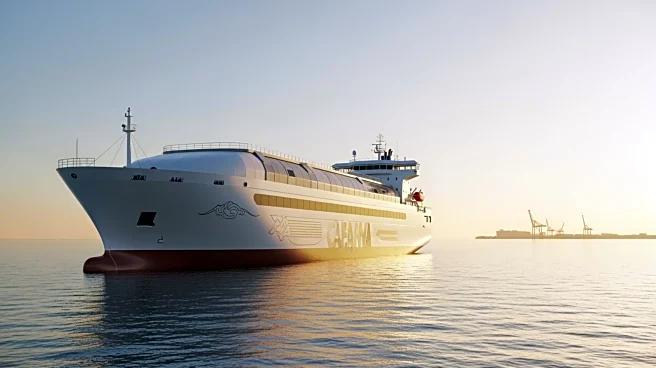What's Happening?
The Trump administration has announced a one-year pause on U.S. port fees for China-linked vessels as part of efforts to negotiate with China over shipbuilding and ocean logistics dominance. This decision
follows agreements reached between President Trump and Chinese President Xi Jinping, aiming to reduce trade tensions. The U.S. Trade Representative's office will pause punitive actions against China related to the 'Section 301' unfair trade practices investigation. The reprieve affects an estimated $3.2 billion annually in fees and includes a pause on tariffs for ship-to-shore cranes and container intermodal chassis.
Why It's Important?
The pause in port fees represents a significant step in U.S.-China trade relations, potentially easing tensions and fostering negotiations on maritime logistics. It reflects the Trump administration's strategy to address trade imbalances and support domestic shipbuilding efforts. The decision may benefit U.S. shipping companies by reducing operational costs and encouraging collaboration with China. However, it also highlights the complexities of international trade negotiations and the need for careful management of economic policies.
What's Next?
The U.S. will engage in negotiations with China regarding the issues raised in the 'Section 301' investigation. Public comments on the matter will be accepted, providing an opportunity for stakeholders to influence the negotiation process. The outcome of these talks could shape future trade policies and impact the global shipping industry.
Beyond the Headlines
The pause in port fees may have broader implications for U.S.-China relations, potentially affecting other areas of trade and diplomacy. It raises questions about the balance between economic interests and national security concerns in international negotiations.










